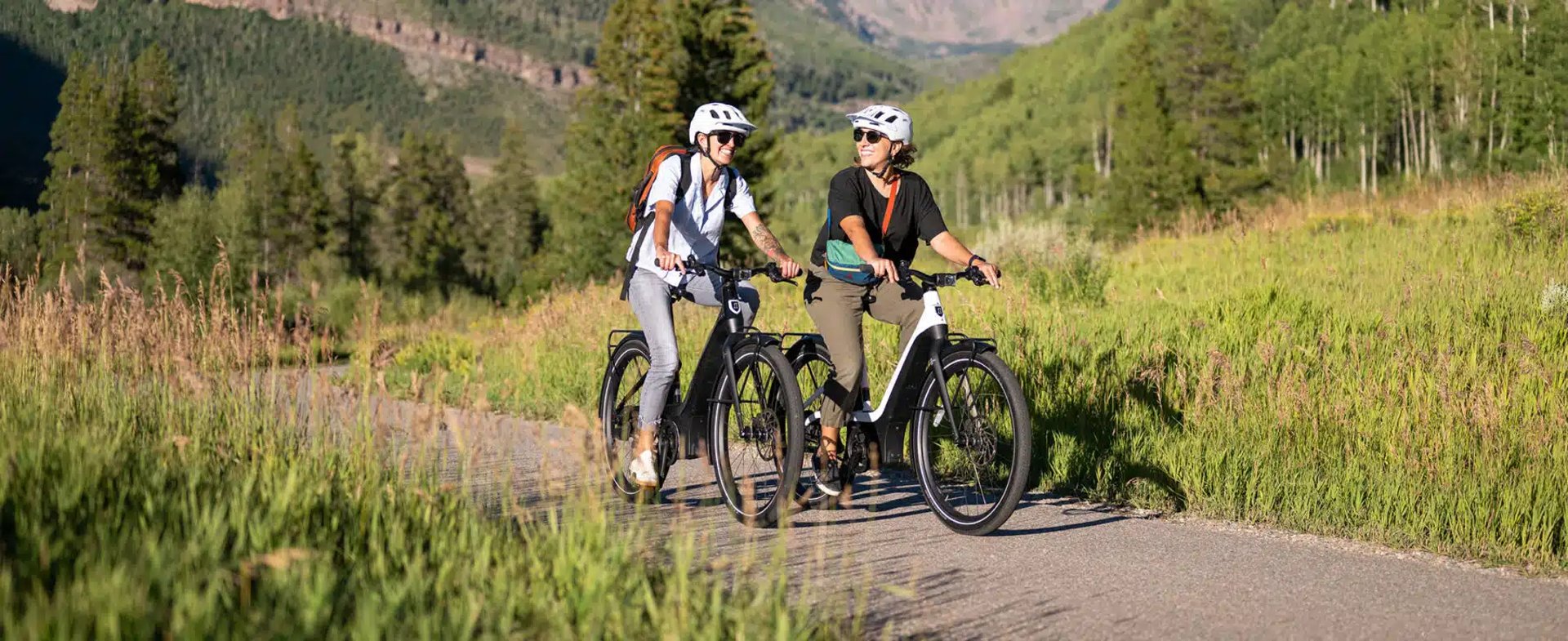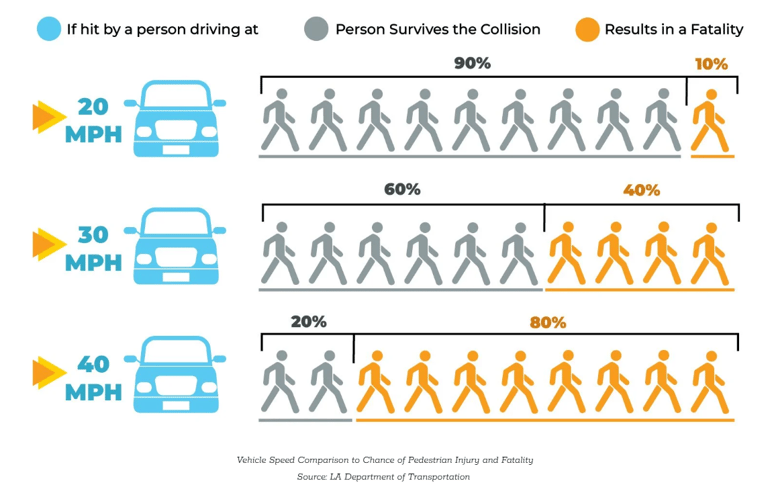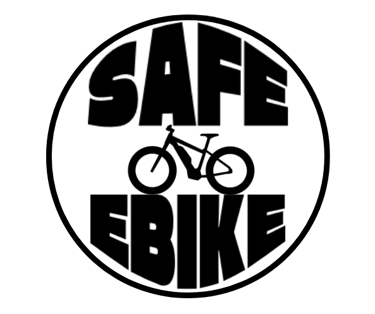
Speed is Dangerous
E-bikes can carry high speeds meaning more danger
Specific risks of e-bike speeds
Longer stopping distances: Higher speeds require a longer distance to brake, which reduces the window for safely avoiding an obstacle or a sudden hazard, such as a car door opening.
Reduced reaction time: At higher speeds, a rider has less time to react to unexpected situations, like a pedestrian stepping into the path or a driver failing to see them.
Increased crash forces: Due to their greater mass, e-bikes have more momentum. This results in significantly higher impact forces in a crash, increasing the likelihood of serious injury, including fractures, concussions, and internal injuries.
Difficulty with control: The weight of e-bikes, combined with higher speeds, makes it harder to maintain stability and control, especially when navigating sharp turns or uneven terrain.
Increased risk in traffic: E-bikes can be less visible to other road users, and aggressive drivers may misjudge their speed. This leads to a higher risk of collisions, particularly at intersections or when changing lanes.
Legal consequences: High speeds are a common traffic violation among e-bike riders, and some areas have restrictions based on e-bike class (e.g., Class 3 e-bikes are capped at 28 mph).
Ways to ride more safely
Adjust speed to conditions: Always match your speed to the environment, your skill level, and the road and weather conditions.
Prioritize safety over speed: Focus on being in control and aware rather than trying to go as fast as possible. When in doubt, slow down.
Wear protective gear: A helmet is crucial, especially for high-speed riders. For Class 3 e-bikes, a certified helmet is essential.
Practice advanced skills: Learn to handle the bike's weight and power by practicing braking, cornering, and hazard avoidance at different speeds.
Stay alert: Scan ahead, anticipate potential conflicts, and remain aware of your surroundings, including pedestrians, cyclists, and motorists.
Slowing Down Won't Kill You




A 40 mph crash is like a fall from 54 feet or 5 stories
Contact US
Connect
info@safe-ebike.com
© 2026. All rights reserved.
